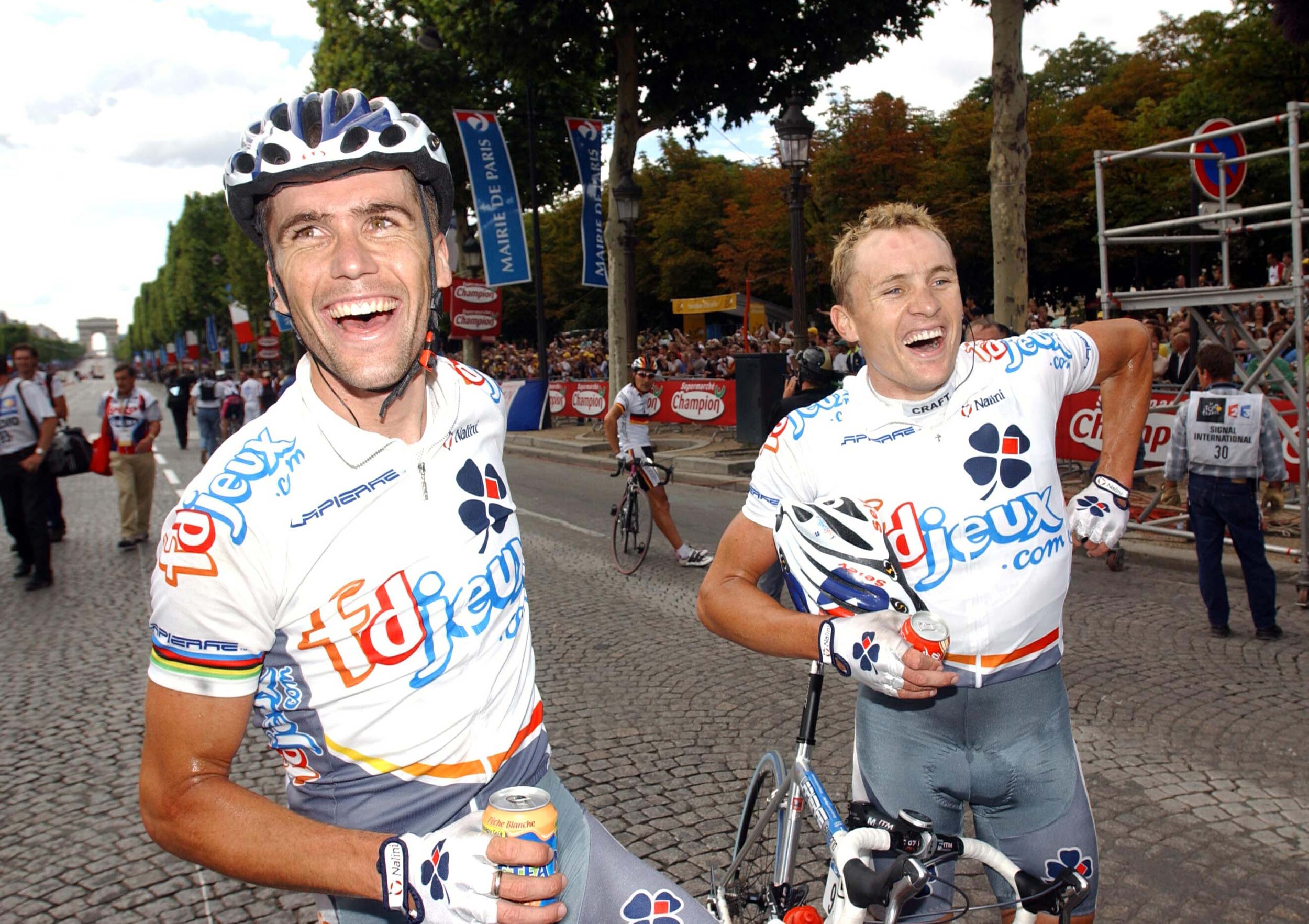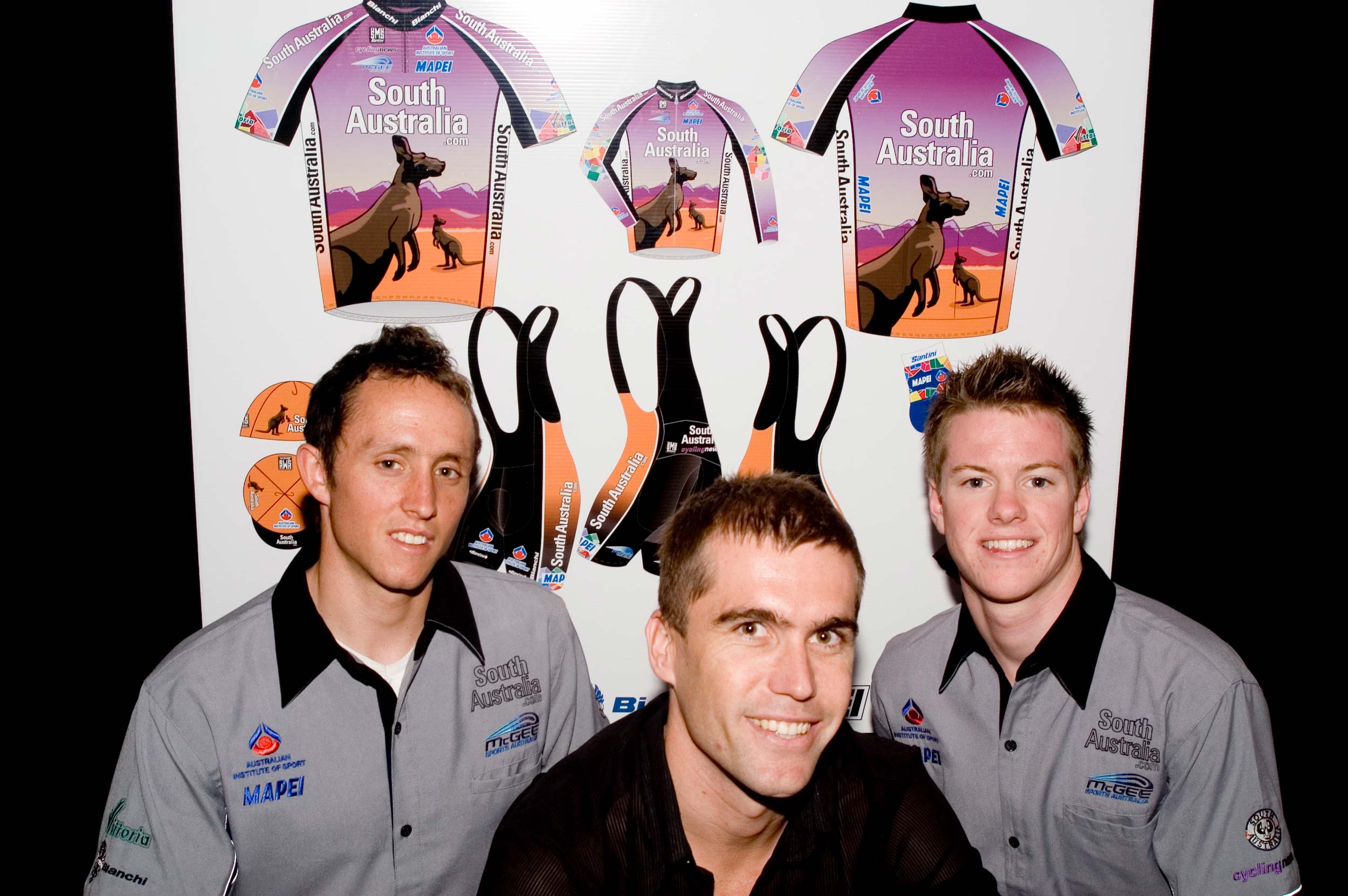Brad McGee is working on a coaching program – MAP, McGee Athlete Pathway – with his mate Vaughan McVilly. In the coming months, I’ll be documenting my experience with Brad as my coach. We caught up at the track for a chat… click the link below to see more.
– Intro to a video interview by Rob Arnold
INTRO:
I’ve come back to the Dunc Gray Velodrome for the first time in a very long time and the reason is: I want to talk to Brad McGee. I visited him on his farm a couple of weeks ago then I’ve had a crash on the bike and been forced to suspend the coaching arrangement that I was going to start doing with him.
Today we’re going to find out a little bit more about his motivation for the coaching business and how he’s going to approach it.
This is an interview with Brad McGee at the Dunc Gray velodrome, the site of his bronze medal in the individual pursuit at the 2000 Olympics. We talk a little about his riding days but the chat is mainly about his coaching wants and desires.
Transcript
(edited for clarity)
RIDE Media: I’m with Brad McGee. I introduced him as my ‘coach’ a couple of weeks ago… and we’re going to have a little bit of a chat about the training programs he’s nutted out and what he hopes to achieve with ‘MAP’ – McGee Athlete Pathway, a business he’s developing along with his good friend, Vaughan McVilly.
And, given that the Tour de France is only a few days from finishing, we might also touch on a bike race that he’s led once in the past…
On one of the straights on this velodrome there was a one-handed salute with a bloke with a fractured collar bone…
Brad McGee: “I don’t think I got it above horizontal Rob.”
RIDE Media: You haven’t been here for a while, but when you [return to the Dunc Gray Velodrome] does that memory come flooding back?
Brad McGee: “Oh absolutely. It’s the smell. As soon as you walk into any velodrome you’ve been to before – and pushed the pedals hard, and sucked in oxygen as much as you can – I think the smell stays with you. It’s the same thing here.
“Sure, I raced the Olympics here, but I also did a lot of training, and I’ve done a lot of coaching here too. That will never leave me, although it’s been quite a few months since I’ve actually been here.”
RIDE Media: Your racing days are a long time gone, but you’re riding now for pleasure. You find a lot of enjoyment on the gravel. Can you give a quick overview of the kind of cycling you’re doing now?
Brad McGee: “I’m doing a little bit indoors. We can talk a bit about that, as it’s part of what we’re putting together with the MAP. That’s been really cool. It’s the first sort of structured cycling training I’ve done for years.
“These days I’m on the gravel bike. My road bikes are in Europe still, pre-COVID. I left them with a mate, ran to the airport… ‘I’ll be back soon. I’ll pick them up…’
“Since then, I found the gravel bike. A mate of mine turned 40 and we rode from Canberra to his place, through Fitzroy Falls where I live, all off-road…
“I just fell straight into it. When you get on a bike you’re just like, ‘Oh this is it so good!’
“I do ride on the road occasionally and I’m happy to ride on the gravel bike… that’s my kind of cycling: no real agenda, nothing too difficult. If I want to drop the hammer, I can. Otherwise it’s just cruising more just to flex the muscle and clear the head. What better way to do that than on a gravel bike. You know where I am, out of the bush – in the forest – with just your thoughts and a few wombats every now and then to worry about.
“I don’t know if I’m really that keen to get on the roads to be honest.
“I estimate that I did about 400,000 kilometres as an elite athlete and all that time, fortunately, was pre-mobile phones. I think it just disturbs me. Now I’m more than happy to grab the gravel bike and get out in the bush to get my cycling fix…
“I’m sure that, if I was in the city, then I would become a bit more accustomed to life back on the road, but I don’t need to.”
RIDE Media: I think that there’s been a whole lot of new people come to the bike because of the pandemic. Closure of gyms and all sorts of things [have contributed to that]. I’ve got a fresh energy to talk about cycling and try to encourage the people who are new to it. We’ve touched on one of the downfalls, which is the road safety matter, but just talk to me about what the aim is with the coaching business. Are you aiming for the newbie, or the experienced bike rider? What kind of protocols are in place? What are you trying to achieve? Are you trying to make world champions, or happy people?
Brad McGee: “Ultimately, I’m looking at continuing to grow and learn myself, but deliver that in a way that others can learn and stimulate their own thinking and grow and develop their cycling capabilities. So, it’s not a complete transfer of knowledge, it is part of that but I’m also looking to grow myself and others.
“Too often in coaching it’s highly instructional. It’s, ‘I’m the coach. Do this. Go better…’ and that works to a certain extent, but definitely through my own career I felt that I was always in control.
“I was self-coached. That’s not to say I didn’t have coaches, but I had the final decision very much athlete driven which is a big focus for our sport systems now is to try to encourage that, if not develop.
“It really works once an athlete fully believes what they’re doing the benefits and the impact is much greater than if they’re just doing what they’re told. We know that. It’s proven [with] science to back it up. So, how do you get there you get there? Through understanding, through knowledge, through trial and error, through protocols…
“My primary role is with the New South Wales Institute of Sport, I’m a coach advisor. I hate the title; I try not to give advice, I’m there to support coaches across all sports.
“I love it, but just as when I went from being an athlete to a coach I maintained the connection with the bike. Why? Because too many sports directors and coaches that I’d worked with had forgotten how bloody hard bike riding is, how hard it is to be an athlete. So, it’s easy to remember ‘blue skies, tailwinds down hills’… but unless you’re still in it – living it, or at least testing yourself, pushing yourself – it’s pretty easy to forget.
“My method, as I went from athlete transition to coach and sports director? I dropped the hammer every now and then, and went out when I don’t really feel like going out, just to remind myself when I’m working with these athletes: it’s bloody hard!
“So, same some rules of pride apply now. I’ve gone from coaching to coach advising – or coach development – and I feel it’s important i maintain some practice in the coaching game. Yeah, again to remind myself when I’m working with these coaches how bloody hard coaching is. And so, at the same time I’ve hooked up with my man Vaughny – Vaughan McVilly (who you’ll hear a lot more from in the future) – and we’ve got our heads together.
“He’s got equal amounts of passion for developing some sort of platform that can inform and encourage others to enjoy the bike like we both have. So, that’s where [MAP] came about. It’s becoming more than a side hustle, it’s probably taking up all my ‘down time’, my hobby time… and we’ve been building this wonderful thing. For me also, it has got me back on the bike in a more structured way, and I’m loving it! Like, I haven’t done a structured training session with efforts you know in years and here I am now, pumping out probably two or three a week as part of what we’re doing.
“So, it’s just a win-win-win!”
– By Rob Arnold
Subscribe to RIDE Media’s YouTube channel, click here.




